Toyota C-HR VS VW T-Cross
Toyota C-HR
The Toyota C-HR stands out with its distinctive and bold design that combines sleek, angular lines with a sporty posture. Its comfortable and stylish interior is equipped with advanced technology features, providing a seamless driving experience. The vehicle offers impressive handling and performance, making it a compelling choice for those who appreciate a blend of practicality and flair on the road.
detailsVW T-Cross
The VW T-Cross stands out as a versatile compact SUV that combines practicality with style. Its interior design offers a spacious and flexible layout, ideal for both city driving and weekend adventures. With its modern infotainment system, the T-Cross ensures drivers and passengers stay connected throughout their journeys.
details @ Toyota
@ Toyota
 @ Toyota
@ Toyota
 @ Toyota
@ Toyota
 @ Toyota
@ Toyota
 @ Toyota
@ Toyota
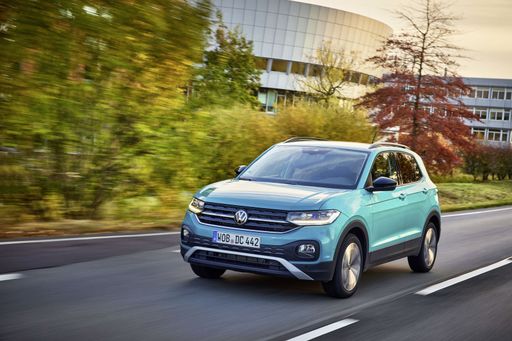 @ Volkswagen
@ Volkswagen
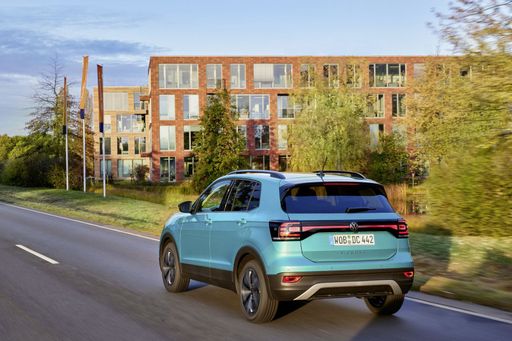 @ Volkswagen
@ Volkswagen
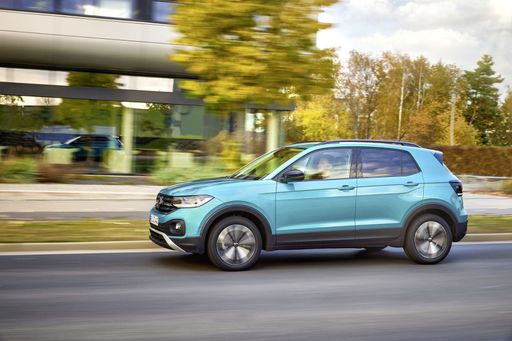 @ Volkswagen
@ Volkswagen
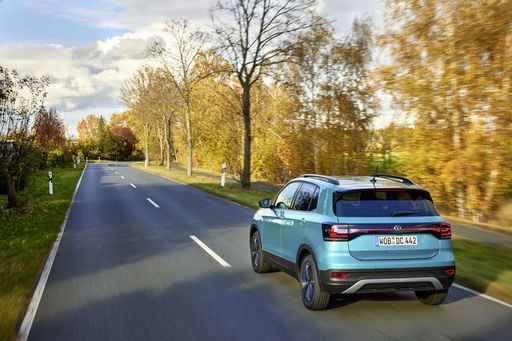 @ Volkswagen
@ Volkswagen
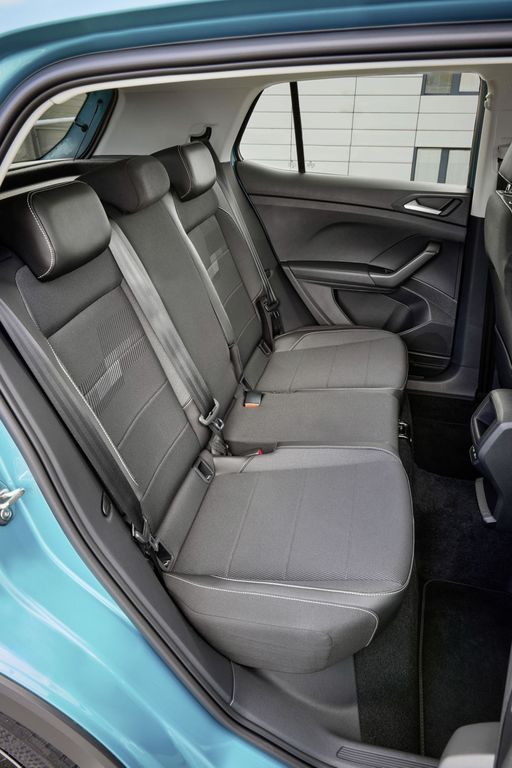 @ Volkswagen
@ Volkswagen
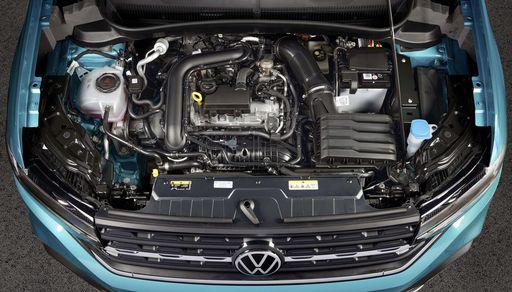 @ Volkswagen
@ Volkswagen

|

|
|
|
|
Costs and Consumption |
|
|---|---|
|
Price
about 30000 - 42800
£
|
Price
about 20900 - 31300
£
|
|
Consumption L/100km
0.8 - 5.1
L
|
Consumption L/100km
5.6 - 6
L
|
|
Consumption kWh/100km
-
|
Consumption kWh/100km
-
|
|
Electric Range
67
km
|
Electric Range
-
|
|
Battery Capacity
-
|
Battery Capacity
-
|
|
co2
19 - 115
g/km
|
co2
127 - 135
g/km
|
|
Fuel tank capacity
43
L
|
Fuel tank capacity
40
L
|
Dimensions and Body |
|
|
Body Type
SUV
|
Body Type
SUV
|
|
Seats
5
|
Seats
5
|
|
Doors
5
|
Doors
5
|
|
Curb weight
1505 - 1755
kg
|
Curb weight
1254 - 1326
kg
|
|
Trunk capacity
350 - 447
L
|
Trunk capacity
455
L
|
|
Length
4362
mm
|
Length
4127
mm
|
|
Width
1832
mm
|
Width
1784
mm
|
|
Height
1558 - 1564
mm
|
Height
1573
mm
|
|
Payload
375 - 425
kg
|
Payload
474 - 480
kg
|
Engine and Performance |
|
|
Engine Type
Full Hybrid, Plugin Hybrid
|
Engine Type
Petrol
|
|
Transmission
Automatic
|
Transmission
Manuel, Automatic
|
|
Transmission Detail
CVT
|
Transmission Detail
Manual Gearbox, Automat. Schaltgetriebe (Doppelkupplung)
|
|
Drive Type
Front-Wheel Drive, All-Wheel Drive
|
Drive Type
Front-Wheel Drive
|
|
Power HP
140 - 223
HP
|
Power HP
95 - 150
HP
|
|
Acceleration 0-100km/h
7.4 - 9.9
s
|
Acceleration 0-100km/h
8.4 - 11.2
s
|
|
Max Speed
175 - 180
km/h
|
Max Speed
180 - 200
km/h
|
|
Torque
-
|
Torque
175 - 250
Nm
|
|
Number of Cylinders
4
|
Number of Cylinders
3 - 4
|
|
Power kW
103 - 164
kW
|
Power kW
70 - 110
kW
|
|
Engine capacity
1798 - 1987
cm3
|
Engine capacity
999 - 1498
cm3
|
|
Top speed
175 - 180
km/h
|
Top speed
180 - 200
km/h
|
General |
|
|
Model Year
2024
|
Model Year
2024
|
|
CO2 Efficiency Class
C, B
|
CO2 Efficiency Class
D
|
|
Brand
Toyota
|
Brand
VW
|
Toyota C-HR
Revolutionising the Crossover Segment: The Toyota C-HR
The Toyota C-HR has firmly established itself as a standout contender in the compact crossover segment. Known for its distinct design and hybrid capabilities, the C-HR continues to prioritise innovation and efficiency. In this article, we delve into the technical details that make the 2024 iteration a compelling choice for discerning buyers.
Distinctive Design and Aerodynamics
The Toyota C-HR boasts a striking design that combines angular lines with modern aesthetics. This isn't merely for show; the design enhances aerodynamics, improving fuel efficiency and handling. With dimensions of 4362mm in length and a sophisticated structure, the C-HR strikes a balance between urban agility and on-road stability.
Impressive Hybrid Powertrains
The C-HR lineup offers innovative hybrid and plug-in hybrid drivetrain options. The full hybrid system is tailored for those who seek both economic and environmental benefits. It combines a petrol engine with an electric motor to deliver power outputs ranging from 140 to 223 PS, achieving remarkable fuel consumption rates from 0.8 to 5.1 L/100km. The 2.0 Plug-In Hybrid variant impresses with an electric range of 67 km, ideal for urban commuters.
Unmatched Efficiency and Performance
Acceleration figures for the C-HR range from 7.4 to 9.9 seconds to reach 0-100 km/h, ensuring a responsive driving experience. Maximum speeds between 175 and 180 km/h cater to those who appreciate a bit of zest on the open road. Coupled with CVT automatic transmission and both front-wheel and all-wheel-drive configurations, the C-HR adapts to various driving conditions with ease.
Advanced Technology and Features
Inside, the C-HR is equipped with the latest technology aimed at providing connectivity and comfort. The model hosts an array of features across its diverse trim levels, including Business Edition, Lounge, and the sporty GR SPORT. Each variant is designed to meet the demands of different lifestyles, ensuring there's a C-HR model to suit every taste.
Sustainability and Cost Efficiency
With CO2 emissions ranging from 19 to 115 g/km, the C-HR stands as a testament to Toyota's commitment to sustainability. Financially savvy consumers will also appreciate the running cost, with monthly expenses from €959 to €1204, and a cost per km as low as 38.4 cents. Such efficiency makes the vehicle an attractive option for eco-minded buyers.
Conclusion: A Forward-Thinking Choice
The 2024 Toyota C-HR embodies Toyota's forward-thinking approach to automotive innovation, blending eco-friendly hybrid technologies with stylish design and practicality. It offers a glimpse into the future of driving, where efficiency meets elegance. Whether you're a city dweller or an adventure seeker, the C-HR promises a driving experience that is both enjoyable and environmentally conscious.
VW T-Cross
The VW T-Cross: A Compact SUV with a Punch
Volkswagen’s T-Cross is stamped as one of the most dynamic models in its segment, combining compact dimensions with versatile features. Designed to bring the SUV experience to an everyday environment, the T-Cross ensures both urban convenience and a robust driving performance. Let's delve deeper into its technical specifications and innovative offerings.
Efficient Powertrains and Performance
Under the hood, the VW T-Cross harnesses efficient powertrains including several petrol engine options, ranging from a modest 95 PS to a more dynamic 150 PS. The model's engine configurations offer either manual or automatic transmission options, coupled with a front-wheel-drive system. These specifications aim to strike a balance between spirited driving and fuel efficiency.
The T-Cross comes with a turbocharged 1.0-litre or 1.5-litre TSI engine, equipped with cylinder deactivation (ACT) technology, enhancing fuel economy and reducing emissions. The engines produce a torque range from 175 to 250 Nm, making everyday driving smooth and responsive.
Fuel Efficiency and Environmental Considerations
The VW T-Cross stands out for its commendable fuel consumption figures, running between 5.6 to 6 litres per 100 km. This classifies it within a respectable CO2 efficiency class D, making it an appealing choice for drivers conscious of both their budgets and environmental footprint. The CO2 emissions range from 127 to 135 g/km, reflecting Volkswagen’s commitment to sustainability.
Design and Utility
Sporting a compact design, the T-Cross measures 4127 mm in length, 1784 mm in width, and 1573 mm in height, offering easy manoeuvrability coupled with an elevated driving position. The SUV hosts a 455-litre boot space, providing ample room for personal belongings or shopping expeditions. Priding itself on practical utility, it can comfortably seat five passengers and supports a maximum load capacity of up to 480 kg.
Comfort and Technology
The T-Cross comes available in various trim levels, such as the GOAL, Life, R-Line, and Style, each offering distinct features tailored to customer preferences. Connectivity and infotainment systems are given priority with the availability of a touchscreen display, ensuring convenience through seamless smartphone integration, navigation systems, and a suite of driver assistance features.
A Conclusion on the VW T-Cross
The VW T-Cross is an embodiment of modern ingenuity within the compact SUV market. It harmonises performance with practicality and presents a modernistic approach to urban driving. Whether you seek efficiency, cutting-edge technology, or ample space to accommodate daily activities, the T-Cross makes a compelling proposition. With a pricing bracket spanning from €24,355 to €36,530, the T-Cross caters to a broad array of budgets while promising a touch of Volkswagen's famed quality and innovation.
